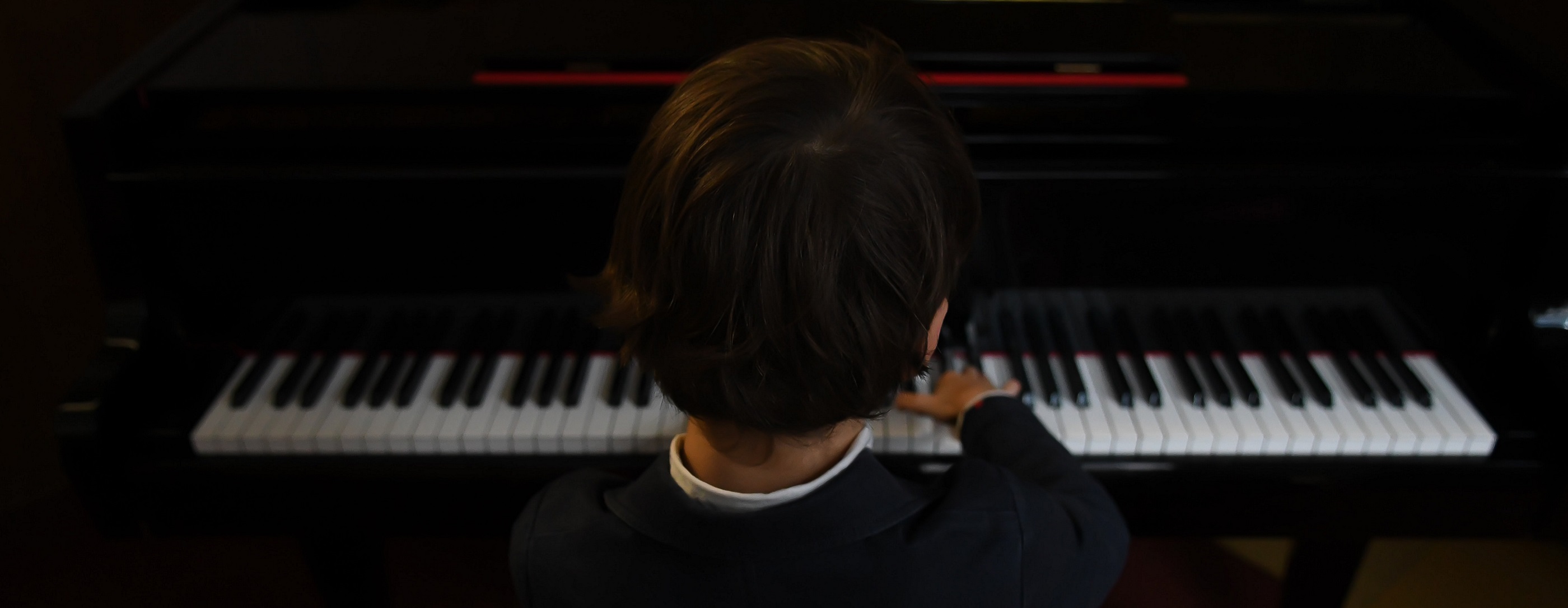
Celebrating poetry!

BY: Sue Clarke: Subject Expert - Drama
05 October 2022
National Poetry Day, taking place on 6 October this year, is a day of celebrating poetry, sharing poetry and writing poetry ‘...because voices, words and stories help to bridge understanding in our community.’ Statistics on the National Poetry Day website indicate that reading, writing and listening to poetry can help young people to generally feel better (The National Literacy Trust, 2020); poetry can support an understanding of ourselves & others (CLPE The Power of Poetry, 2017); and poems are a key way for secondary students to a encounter Black, Asian or other minority ethnic author (The Runnymede Trust and Penguin Random House 'Lit in Colour' report, 2020).
But the website also states that 54% of children and young people often do not currently engage with poetry (The National Literacy Trust, 2018).
Poetry is, however, a key part of the English national curriculum at both Key Stages 2 and 3, and learners are expected to engage in a range of literary forms. There is also an emphasis on developing pupils’ vocabulary and spoken language skills, recognising that being able to express oneself impacts massively on one’s life; from forming relationships, to applying for and getting a job. So, putting these two things together – poetry and the development of language skills - is surely a good idea.
As a drama practitioner and teacher, my focus and approach to education and learning is often through the prism of performance. Whether it’s the act of bringing a text to life, or the exploration of history, or in supporting the development of a vocabulary rich classroom; performance and drama are useful ways of learning. And often poetry is a starting point for me. Why? Because of the wonderful distillation of ideas that can be achieved through poetry, the careful, minimal choice of words, the ability to communicate through the abstract, a metaphor or sometimes because of a poem’s devastating simplicity to hit a nerve.
And performing poetry can be a fantastic way to encourage learners of all ages and abilities to actively engage with a poem in order to develop a deeper understanding and appreciation of it. I think Maya Angelou puts it well when she talks about poetry…
‘Words mean more than what is set down on paper. It takes the human voice to imbue them with the shades of deeper meaning.’
- Maya Angelou
….even in silent reading there will be a voice in our heads that gives shape to the words. Indeed, there are so many poets currently who give voice to their work - from Michael Rosen (a firm believer that poems should be spoken out loud) to Kae Tempest, Sabrina Benaim and Benjamin Zephania. From slam poetry events to rap and hip hop - resources for the classroom are plentiful!
For English and Drama teachers alike, encouraging learners to perform a poem rather than just read it can be immensely enjoyable. Using a poem actively can:
- Engage all learners with reading – the reluctant reader or the student with additional needs is more likely to participate as they are taking part in a practical activity. As such, they are learning by doing.
- Encourage an appreciation of the text on a deeper or more personal level. Because of the physical nature of performance, learners form a physical, vocal and, therefore, a visceral relationship with and to the poem or text – it gets in your body!
- Motivate learners to think creatively, abstractly, metaphorically, visually when conveying ideas.
- Provide opportunities for collaboration – pupils can work together, share ideas, watch and learn from each other leading to greater inclusion and peer support.
- Be enjoyable and FUN!
Providing a framework for this type of work can be incredibly useful for teachers and learners alike and using Speech & Drama graded exams as that framework can support a range of learning opportunities:
- Learners are actively engaging with different texts including poetry, prose and dramatic texts and, therefore will encounter different styles of writing, registers and audiences, and will inevitably be exposed to new and a varied vocabulary.
- Poetry as performance means the words are spoken out loud and, as such, there will be an analysis of word choice and meaning. Consideration on how to vocalise that meaning will be inherent in the process with a focus on pitch, pace, volume, emphasis, pause etc. There will be an opportunity for experimentation on creating characters through voice, conveying tension or suspense or creating atmosphere.
- Using movement, mime, facial expression and gesture can help develop a richer understanding of the words being spoken and will encourage a visual way of looking at the poem.
- Memorising poems for performance – giving time and space to do this (not just rote learning but by way of a rehearsal for performance) – can really help develop a learner’s confidence with language, speech and vocabulary.
- Because of the practical, performance focus of these exams, they are very attractive to the reluctant reader/writer. The learning is through the preparation of the text for performance, so is gained through practical work not written. Plus there are a range of grades to suit all ages and abilities which means inclusivity for all.
Trinity College London’s Speech and Drama exams allow for a free choice of exam pieces, meaning teachers and learners can select poems that they enjoy and that inspire them. We want young people to have a real sense of ownership of the material that they are reading and performing and we recognise the cultural and social richness and diversity of literature and the desire to reflect that in the classroom.
In celebration of poems and poems, ahead of National Poetry Day, we asked our examiners to share their favourite poems. These included:
- 'Soap' by Nissim Ezekia, which the examiner said was ‘a good example of a colloquial verse’. 'The Frog and the Nightingale by Vikram Seth, which is ‘...rather lovely and it has much to offer for performing aloud’.
- 'The Newcomer' by Author Brian Patten ‘..arising, of course, out of the environmental agenda’.
- 'The Sloth' by Theodore Roetke which the examiner described as ‘light animal verse’ for younger learners.
- Also put forwards was ‘25 Minutes to Go’ by Shel Silverstein. The examiner stated ‘although grim, [the poem] is powerful and very exciting to perform’.
These are to name a few, but do take a look at our free Online Anthology for some other great poetry to read, share and perform this National Poetry Day.




Comments & Replies